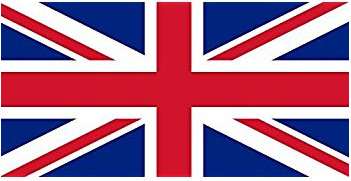You say nothing’s right but natural things … you fool.
Poison oak is a natural plant—why don’t you put some in
your food?
I don’t care if there’s chemicals in it, as long as my lettuce is crisp!
Preservatives might just be preserving you,I think that’s something you missed!
—”Eat Starch Mom,” lyrics by Grace Slick
“Natural is best! Buy our 100 percent natural vitamins,” the
magazine advertisement says. But is it true that these vita mins are best? A controversy has been raging for years about the relative virtues of synthetic versus natural nutrients. Is natural vitamin C really better for you than synthetic C? Is a molecule of vitamin C produced by a natural biological factory like an orange or a bell pepper different from a molecule of vitamin C synthesized in a man-made chemical factory? This question has been answered by an experiment we report here.
You may be surprised by the answer.
A heated debate has been going on for years in the lay nutrition literature over the issue of which is better, synthetic or natural. Many self-styled nutrition experts claim that “natural” vitamins and “natural” food and “natural” everything are better for your health than man-made (synthetic) vitamins, nutrients, and foods. For example, in the booklet “The Prevention System for Better Health,” written in 1975 by J.I.Rodale (founder of Prevention magazine) and Robert Rodale (the publisher of Prevention), we find (on page 8):
“… the very idea of swallowing chemicals manufactured in a laboratory as dietary supplements is abhorrent. Such products may
seem to the chemist to be identical twins to nature’s own nutrients. But their biological activity is different from that of nature’s products—the body’s ability to absorb and use them is less than when getting its nutrition from natural food—and synthetic vitamins can produce side effects, sometimes dangerous ones, as is seldom or never the case with natural foods.” To some degree, most popular nutrition publications share these myths.
A basic fact is that all foods, vitamins, and nutrients, and all the other substances of life, are chemicals. Though you wouldn’t normally refer to common biological substances by their chemical names, some of them have extremely complex names and structures. For example, if you had scrambled eggs for breakfast, you ate (among other things) ovalbumin, conalbumin, ovomucoid, mucin, globulins, cysteine (an amino acid), lipovitellin, livetin, cholesterol, lecithin, lipids, butyric acid, acetic acid, lutein, zeaxanthin, phosphates, and carotene. (If you didn’t know that these compounds were naturally found in a chicken’s body, you might think they came from a chemical plant.) An example of a compound produced in
your own body is the sodium salt of 2-pyrrolidone-5-carboxy-
lic acid (Na-PCA), which is the primary natural moisturizer in
your skin. By holding water in your skin, Na-PCA keeps it soft
and supple. If your own body isn’t making enough, you can
add some externally, as Na-PCA is an ingredient in some pre-
mium moisturizing cosmetics; thus Na-PCA can be manufactured in the laboratory independently of the human body’s capacity to produce it. It may be cheaper to make it in a tank than in your body (the body can then use the requisite starting materials for something else).
Are you interested in life extension products?
mod4all ships all major brands of Modafinil from the UK
All products shipped from the UK by tracked post. We guarantee delivery.
We guarantee delivery, free reshipping.
Any questions at all about payments, shipping, etc. Anything at all, just email us.

Comments (0)